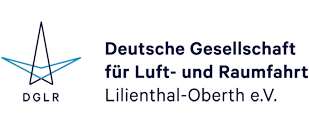DGLR-Publikationsdatenbank - Detailansicht
Autor(en):
S. Rifat, N. Ebrahimi Pour, F. Dressel, S. Roller
Zusammenfassung:
The enhancement of computational power and the ability to facilitate sophisticated real-world applications has given rise to the demand for the efficient execution of such simulations. They are inherently complex and involve multiple physical phenomena, that have to be taken into account. In recent years, there have been advances in numerical methods to allow for more efficient computation. Nevertheless, the available software packages are highly complex, necessitating special training for their usage. The configuration of such a complex simulation is not straightforward. Furthermore, scientists are required to invest time and have in-depth knowledge of the code to understand its functionalities. Consequently, this approach requires a significant investment of time and resources. Currently, Large Language Models (LLMs) are being appreciated for its recent advancement in software development such as code generation, function-level performance evaluation etc. Despite such remarkable achievements, LLMs still struggle to analyze and understand the infrastructure of an operational software stack. This step is crucial for Artificial Intelligence (AI) driven automated development of a private or customized industrial research workflow. In this work we introduce a LLM based multi-agent framework which is able to collaborate between individual modules of a complex software architecture and compile the whole simulation from a single user prompt in real time. Code repository level agents are specialized in navigating the code base and retrieving the file to be compiled for specific simulation scenario by comparing the user instruction against the code base which is stored in the agent’s memory. Furthermore, the integration of coupling level agents provide a baseline for combining multiple libraries or modules which is an essential process in task-agnostic Software Engineering (SE) workflows. We investigate the potential of LLMs in assisting users with information they need to get familiar when working with unexplored software packages. For this purpose the source code of the solver, a highly parallel computational fluid dynamic solver, is provided to the LLM for demonstration. In first studies the utilised LLM algorithm provided accurate responses to questions asked by the user to understand the capabilities of the solver. Extensive experiments on the role of multi stage agents reveals the compatibility of LLMs in efficient aerodynamic simulation tasks.
Veranstaltung:
Deutscher Luft- und Raumfahrtkongress 2025, Augsburg
Verlag, Ort:
Deutsche Gesellschaft für Luft- und Raumfahrt - Lilienthal-Oberth e.V., Bonn, 2025
Medientyp:
Conference Paper
Sprache:
englisch
Format:
21,0 x 29,7 cm, 10 Seiten
URN:
urn:nbn:de:101:1-2510311016024.918875468892
DOI:
10.25967/650152
Stichworte zum Inhalt:
Large Language Models, Source Code Generation, Source Code Analysis, Agentic Framework, Numerical Simulation, Virtual Product, Aerospace Engineering
Verfügbarkeit:
Download
- Bitte beachten Sie die Nutzungsbedingungen dieses Dokuments: Copyright protected
Kommentar:
Zitierform:
Rifat, S.; Pour, N.E.; et al. (2025): Towards an AI Driven Simulation Framework. Deutsche Gesellschaft für Luft- und Raumfahrt - Lilienthal-Oberth e.V.. (Text). https://doi.org/10.25967/650152. urn:nbn:de:101:1-2510311016024.918875468892.
Veröffentlicht am:
31.10.2025
